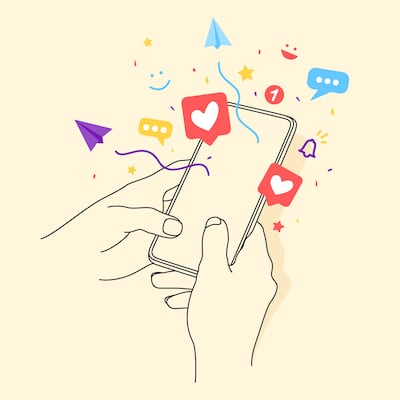
Sometimes social media can support a faux activism that mimics action and sometimes as a witness – as a record of what is happening that can enter into any space – it is powerful.
Sometimes it can take flight.
This was a lesson learned by a group of 25 students from Castleknock in 2014. It was a Sunday and Killian Zambra was at a football match when one of his best friends, Lucy Hanlon, phoned. She told him their beloved friend, Tríona Priestly, was not doing well.
I had known Tríona my whole life. When I was a teenager, and she could not sleep, I pushed her pram through the corridors of St Philomena’s Ward in Temple Street Children’s Hospital. She was the sister of my dear friend and co-conspirator, Colm, a kind of magically effortless comedian with insane levels of potential. She felt like my sister too.
I was scrolling through Twitter when I found out that the 15-year-old from Clonsilla was fighting end-stage cystic fibrosis in the intensive care unit (ICU) of Temple Street and her condition was not good.
While I was trying to comprehend the hashtag SONGFORTRI and wrestling with my own feelings of nausea at the situation, the two 16-year-olds, Lucy and Killian, had met up with some of their classmates. They knew they had to do something.
Back then Killian told me: “As we sat there, more and more people just kept turning up. After about an hour and a half of tears we realised that crying wouldn’t help her, tears wouldn’t make it better. The most important thing was to lift her spirits. Healthy spirits would keep her fighting.”
The teenagers knew Ed Sheeran was Tríona’s favourite singer and so they decided to try to get him to sing a song for her.
At 6pm, the teenagers started tweeting #SongForTri to Sheeran’s account.
They stood together, eyes and hands glued to their phones. “People didn’t know how much they could really do until someone remembered they had a relative in Poland and they contacted her,” said Killian. The students reached out to people across the world via phone and most importantly, on Twitter.
Four hours later, the students had amassed some 40,000 tweets.
Early the next morning, Sheeran responded. He tweeted Lucy that he would get it sorted. “@Trionaaa Get Well Soon dude, I’ll see you when I’m over in October xxx”.
But time wasn’t on her side. Her friends tweeted more, reaching out, talking to anyone they could – including Ed’s manager. I wonder now how they feel about this immensely powerful and life-changing work that they did at 15 and 16 years of age, together.
Two days later, at lunchtime, the news broke. On that day, Sheeran’s album filled her room in the ICU non-stop. The only time they stopped the music was when the call came shortly after noon. Colm, Tríona’s brother, turned the phone on loudspeaker and held it up to her ear.
Her hero, Ed Sheeran, sang Little Bird down the phone to her as she slipped away.
Her loved ones stood with her and, undoubtedly, the power of love itself held her. That in this moment social media was a catalyst for that love, and the teenagers themselves the instigators, is just one reminder of the good social media can do – when in the right hands.
When I think about it now, Tríona would tweet exactly how she felt about the world, or hospital, or her life, when she felt like it. It was powerful and heartbreaking and funny. At the time I felt deeply proud of her and concerned too. She was a pioneer of confessional writing on Twitter, although I don’t know if she knew it.
While some of us were wondering what sort of things we could do, or sell, or acquire, via social media, she practised a radical honesty in a way only a 15-year-old can. Twitter became like a diary where connection with those who cared was immediate. Energy and exhaustion infiltrate space in a hospital setting. This is something I know to be true, and a single tweet or Instagram brought comfort to a darkened room with no visitors. It morphs into a space to write intentionally and lyrically when picking up a pen is not an option. These are things I know to be true.
Tríona and I shared this in our link to social media – the power of having a witness.
When you need a witness and you need to feel you are not alone sometimes, for all its flaws, social media is a source for good.













